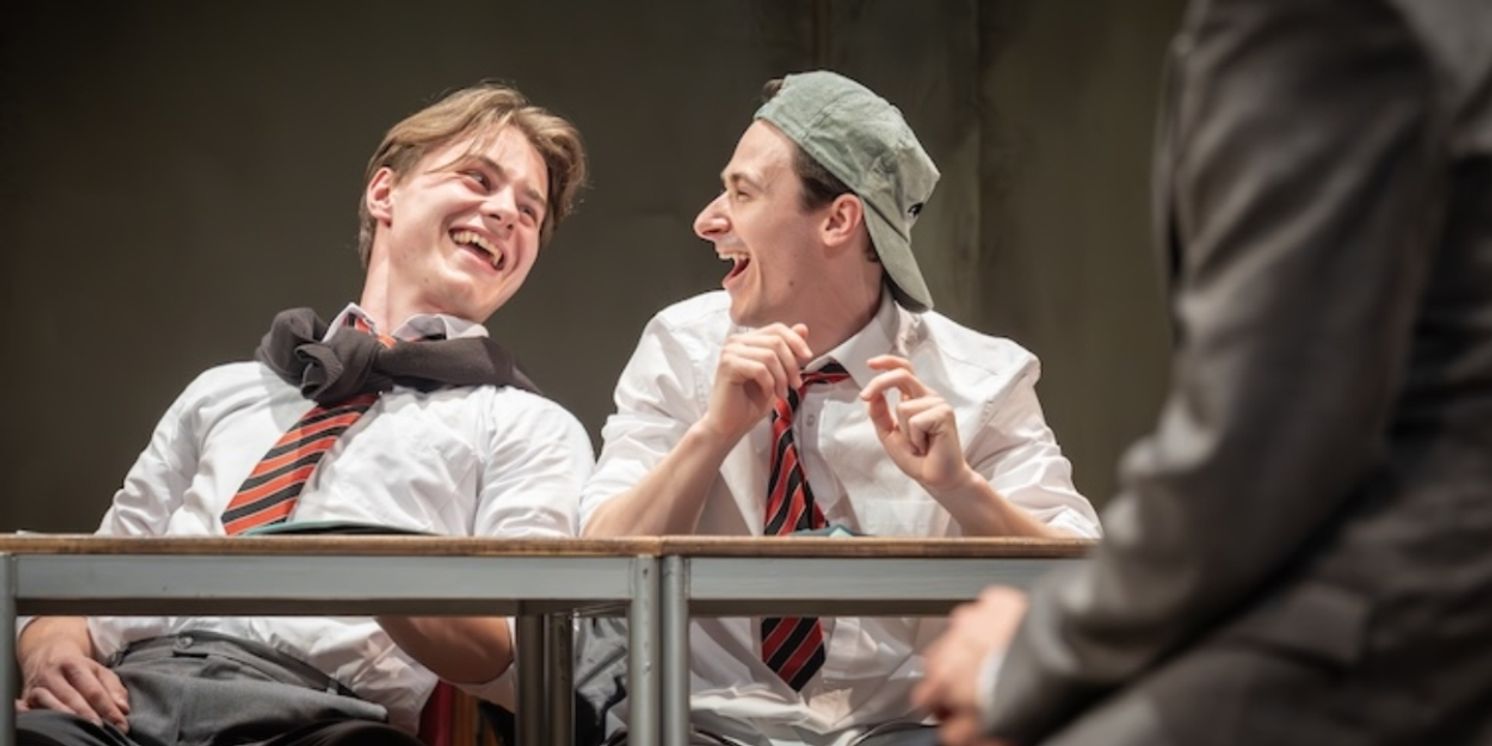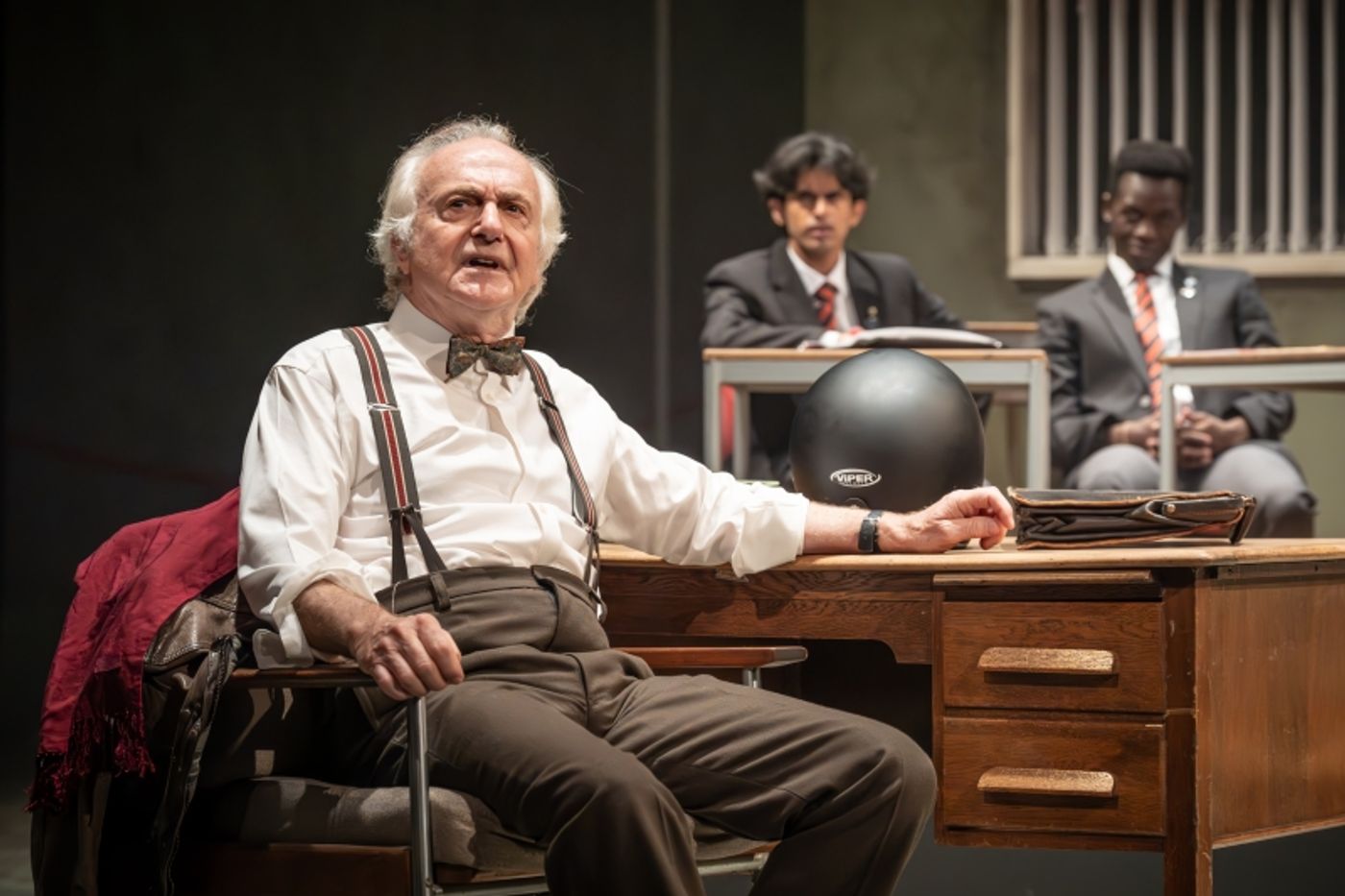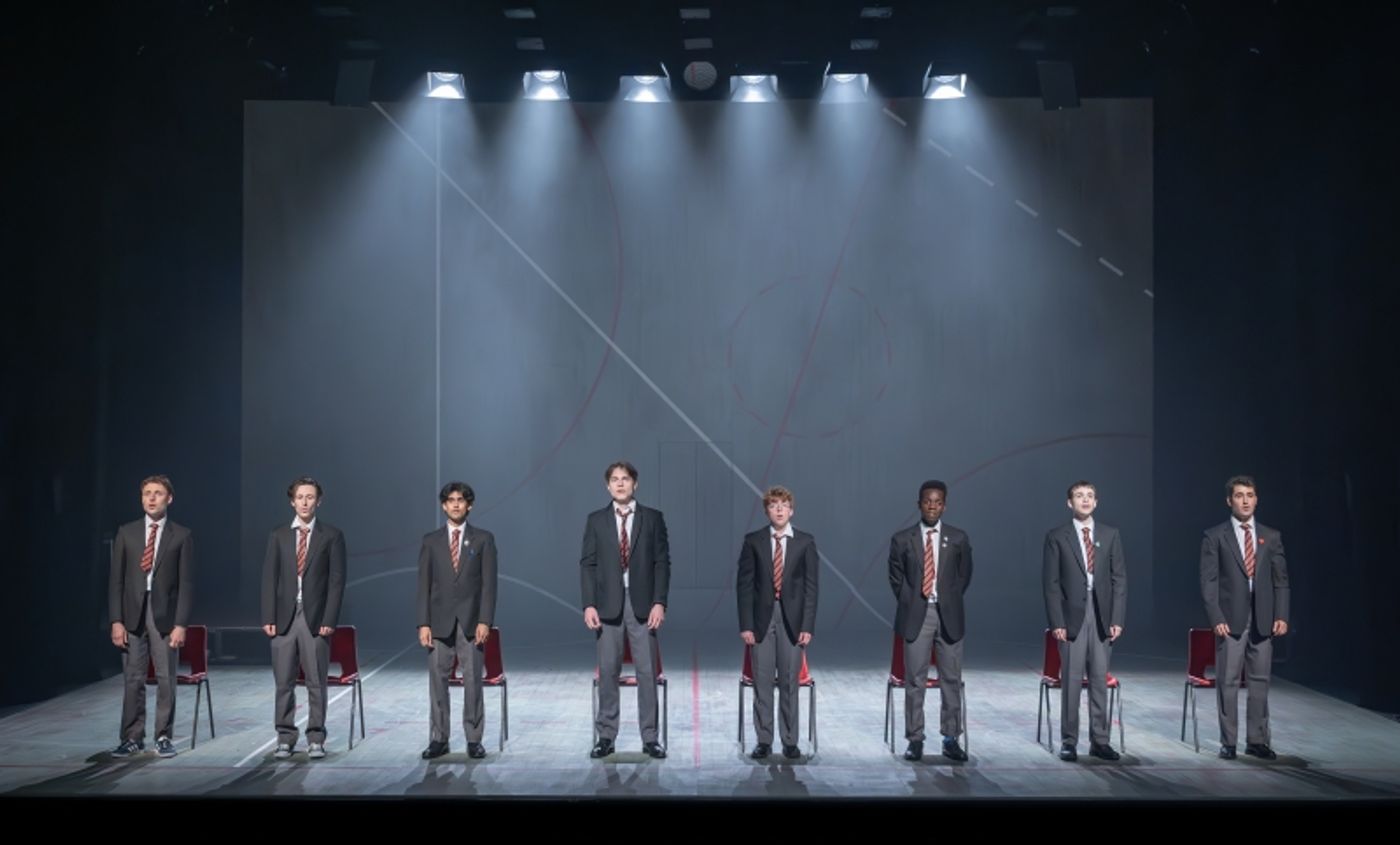Review: THE HISTORY BOYS, Theatre Royal Bath
Lively 20th anniversary revival of Alan Bennett's award-winning play feels fresh for today's audiences

![]() What is the purpose of education? Is it to get a place at a hallowed university to ensure a high-paying job and successful future? Or to expand minds and acquire knowledge for knowledge's sake?
What is the purpose of education? Is it to get a place at a hallowed university to ensure a high-paying job and successful future? Or to expand minds and acquire knowledge for knowledge's sake?
With a new Labour government stripping private schools of charitable status and requiring them to charge 20% VAT on fees to fund 6,500 state school teachers, Sean Linnen's dynamic revival of the nation's favourite play (per a 2013 poll by English Touring Theatre) couldn't be more timely.
Along with arguments raging about extra costs for private education, the validity of the arts is constantly being called into question (surely scientists would be more useful to boost the economy), along with debates around whether one should bother going to university at all.
Marking the 20th anniversary of The History Boys and playwright Alan Bennett's 90th birthday, Linnen expresses his admiration for the original version, but makes it feel fresh for today's audiences.

His depiction of eight, northern, grammar-school boys preparing for Oxbridge exams under the guidance of three teachers is as funny and heart-rending as when it premiered at The National Theatre on May 18, 2004.
A-grade performers Richard Griffiths, Frances de la Tour and Stephen Campbell Moore starred as the teaching trio with very different methods; while new stars, such as Dominic Cooper, James Corden, Russell Tovey, Jamie Parker and Samuel Barnett were born.
Linnen weaves in some conceits from the film, like the opening scene when the boys boisterously celebrate getting their A-level results, and makes a few other playwright-approved tweaks to Bennett's deadpan script. He also introduces 1980s-scored song-and-dance numbers (under the musical direction of Eamonn O'Dwyer), including the boys' rebellious and rousing 'Stand and Deliver' by Adam and the Ants at the beginning of Act Two.
In fact, the energy of the boys tends to outstrip that of the adults, with them hand-turning the revolve set in slick, propulsive scene changes, with a utilitarian classroom on one side and lacklustre playground exterior on the other. Designer Grace Smart uses an effective pared-down shorthand – a sofa and water cooler to represent the staffroom, for instance.
The boys make the show their own, each one offering insight into their character (with help from excellent movement coach Chi-San Howard in hilarious scenes ranging from Brief Encounter to a French lesson with dubious goings-on in a brothel). Lewis Cornay as Posner is certainly one to watch, with a gorgeous singing voice and total command of the audience. Teddy Hinde has the dreaded task of taking on James Corden's scene-stealing role of Timms, but brings his own interpretation to the role. And the casting of Archie Christoph-Allen as the handsome and confident Dakin is spot-on.

Gillian Bevan's portrayal of straightforward history teacher Mrs Lintott is top class. Her speech about how women have been ignored throughout the centuries – "history is women following behind with the bucket" – is magnificent.
However, try harder applies to Simon Rouse's rather gentle rendering of Hector, the much-loved English master who inspires the boys with his literary quotations, poetry and emotional teaching style. The boys adore Hector, but Rouse doesn't convey the larger-than-life charisma to demonstrate why.
Equally, a slightly underpowered Irwin (Bill Milner as the young, deceitful Oxford graduate hired by a league-table loving headmaster to get results) is upstaged by his pupils. We get glimpses of his vulnerability in the second act when he's unable to respond to a bold Dakin propositioning him, but a more well-rounded character might reveal more pathos.
However, my concerns about how Hector's fiddling with the boys when riding pillion on his motorbike would play 20 years after the show's first performance were placated. The headmaster's desire to brush everything under the carpet to not blacken the school's reputation was somehow more alarming than Hector's fumbling behaviour.
At the play's heart is the opposition between practical and cunning Irwin versus Hector's chaotic and idealistic vision. We need to believe wholly in these two characters' stances. Is history "just one f***ing thing after another," as Ned Costello's Rudge declares. Or is there more to learning than meeting targets and gaming the system? Bennett's gold-star modern classic, like the best teachers, trusts audiences to reach their own conclusion.
The History Boys runs at Theatre Royal Bath until August 31, and then tours
Photo credit: Marc Brenner
Reader Reviews
Videos

